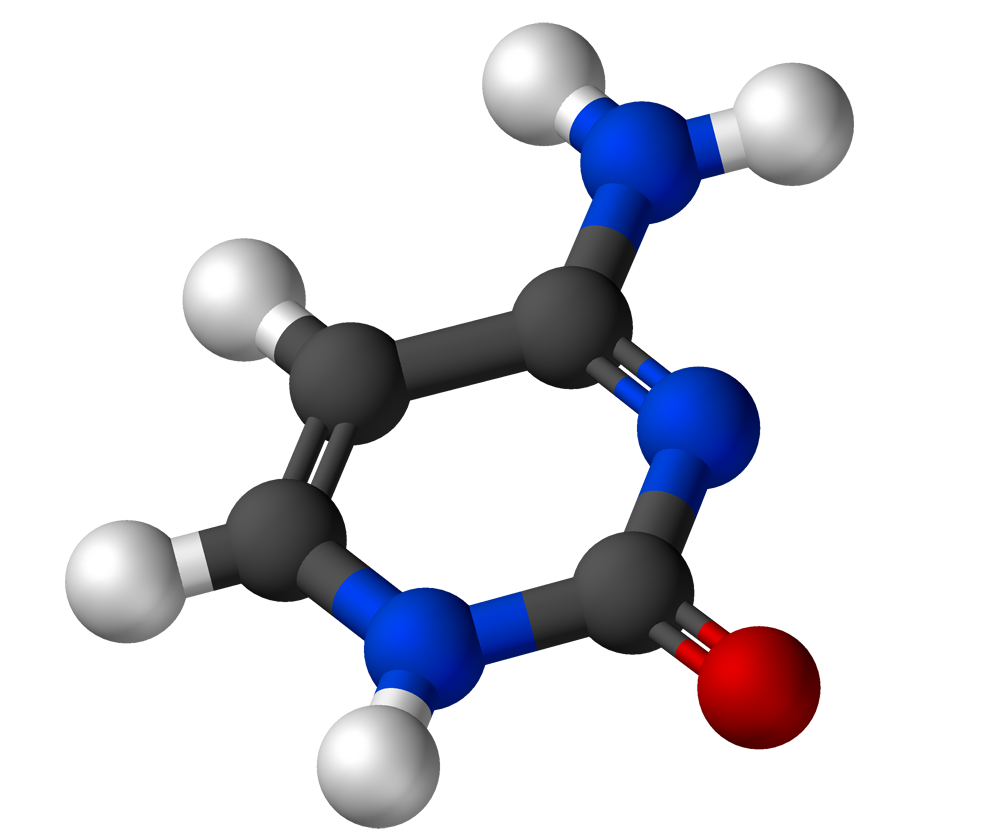Acytosiosis
| Acytosiosis | |
|---|---|

| |
| Synonyms | N/A |
| Pronounce | N/A |
| Specialty | N/A |
| Symptoms | Developmental delay, intellectual disability, seizures |
| Complications | N/A |
| Onset | Infancy |
| Duration | Lifelong |
| Types | N/A |
| Causes | Genetic mutation |
| Risks | Family history |
| Diagnosis | Genetic testing, clinical evaluation |
| Differential diagnosis | Other genetic disorders |
| Prevention | N/A |
| Treatment | Supportive care, symptomatic treatment |
| Medication | N/A |
| Prognosis | Variable |
| Frequency | Rare |
| Deaths | N/A |
== Acytosiosis ==

Acytosiosis is a rare genetic disorder characterized by the absence or severe deficiency of cytosine in the DNA of affected individuals. This condition leads to significant disruptions in cellular function and development, as cytosine is one of the four main bases found in DNA and RNA, alongside adenine, guanine, and thymine (or uracil in RNA).
Pathophysiology[edit]
Cytosine plays a crucial role in the storage and expression of genetic information. It pairs with guanine in the DNA double helix, forming stable hydrogen bonds that are essential for the structure and function of DNA. In acytosiosis, the lack of cytosine disrupts these pairings, leading to instability in the genetic material. This instability can result in errors during DNA replication, transcription, and translation, ultimately affecting protein synthesis and cellular function.
Clinical Manifestations[edit]
Individuals with acytosiosis may present with a variety of symptoms, depending on the severity of the cytosine deficiency and the specific tissues affected. Common clinical features include:
- Developmental delays
- Neurological deficits
- Growth retardation
- Immunodeficiency
- Metabolic abnormalities
The severity of symptoms can vary widely among affected individuals, with some experiencing mild effects and others suffering from severe, life-threatening complications.
Diagnosis[edit]
The diagnosis of acytosiosis is typically made through genetic testing, which can identify mutations in genes responsible for cytosine synthesis or incorporation into DNA. Whole genome sequencing or targeted gene panels may be used to detect these mutations. Biochemical assays can also measure cytosine levels in tissues or bodily fluids, providing additional diagnostic information.
Treatment[edit]
Currently, there is no cure for acytosiosis. Treatment is primarily supportive and focuses on managing symptoms and preventing complications. This may include:
- Nutritional support
- Physical and occupational therapy
- Medications to manage specific symptoms, such as anticonvulsants for seizures
- Regular monitoring and management of metabolic and immunological abnormalities
Research into potential therapies, such as gene therapy or enzyme replacement therapy, is ongoing.
Prognosis[edit]
The prognosis for individuals with acytosiosis varies depending on the severity of the condition and the effectiveness of supportive care. Early diagnosis and intervention can improve outcomes, but the disorder often leads to significant morbidity and can be life-limiting.
Related Pages[edit]
Ad. Transform your life with W8MD's Budget GLP-1 injections from $75


W8MD offers a medical weight loss program to lose weight in Philadelphia. Our physician-supervised medical weight loss provides:
- Weight loss injections in NYC (generic and brand names):
- Zepbound / Mounjaro, Wegovy / Ozempic, Saxenda
- Most insurances accepted or discounted self-pay rates. We will obtain insurance prior authorizations if needed.
- Generic GLP1 weight loss injections from $75 for the starting dose.
- Also offer prescription weight loss medications including Phentermine, Qsymia, Diethylpropion, Contrave etc.
NYC weight loss doctor appointmentsNYC weight loss doctor appointments
Start your NYC weight loss journey today at our NYC medical weight loss and Philadelphia medical weight loss clinics.
- Call 718-946-5500 to lose weight in NYC or for medical weight loss in Philadelphia 215-676-2334.
- Tags:NYC medical weight loss, Philadelphia lose weight Zepbound NYC, Budget GLP1 weight loss injections, Wegovy Philadelphia, Wegovy NYC, Philadelphia medical weight loss, Brookly weight loss and Wegovy NYC
|
WikiMD's Wellness Encyclopedia |
| Let Food Be Thy Medicine Medicine Thy Food - Hippocrates |
Medical Disclaimer: WikiMD is not a substitute for professional medical advice. The information on WikiMD is provided as an information resource only, may be incorrect, outdated or misleading, and is not to be used or relied on for any diagnostic or treatment purposes. Please consult your health care provider before making any healthcare decisions or for guidance about a specific medical condition. WikiMD expressly disclaims responsibility, and shall have no liability, for any damages, loss, injury, or liability whatsoever suffered as a result of your reliance on the information contained in this site. By visiting this site you agree to the foregoing terms and conditions, which may from time to time be changed or supplemented by WikiMD. If you do not agree to the foregoing terms and conditions, you should not enter or use this site. See full disclaimer.
Credits:Most images are courtesy of Wikimedia commons, and templates, categories Wikipedia, licensed under CC BY SA or similar.
Translate this page: - East Asian
中文,
日本,
한국어,
South Asian
हिन्दी,
தமிழ்,
తెలుగు,
Urdu,
ಕನ್ನಡ,
Southeast Asian
Indonesian,
Vietnamese,
Thai,
မြန်မာဘာသာ,
বাংলা
European
español,
Deutsch,
français,
Greek,
português do Brasil,
polski,
română,
русский,
Nederlands,
norsk,
svenska,
suomi,
Italian
Middle Eastern & African
عربى,
Turkish,
Persian,
Hebrew,
Afrikaans,
isiZulu,
Kiswahili,
Other
Bulgarian,
Hungarian,
Czech,
Swedish,
മലയാളം,
मराठी,
ਪੰਜਾਬੀ,
ગુજરાતી,
Portuguese,
Ukrainian